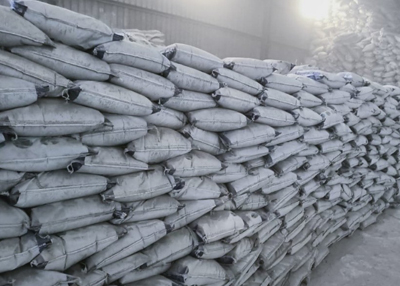
The global calcined petrol coke market is driven primarily by the demand for high-quality carbons in multiple industrial sectors. The demand is further boosted due to increased investments and expansion of industrial activities in the world. The growing focus on sustainability is also boosting efforts to create greener alternatives with improved performance that comply with strict regulatory standards.
The aluminum industry is the major driver of the market for calcined Petroleum Coke (CPC), as it needs anode-grade CPC in order to produce carbon anodes used in aluminium production. Moreover, growing steel consumption in developing regions is also driving the market, as calcined coke is used to manufacture electrodes that are required for electric arc and induction furnaces.
Moreover, CPC is also employed in the manufacturing of cement and thermal power. The demand for CPC is also growing because of its low emissions during combustion and high efficiency in heat recovery.

Moreover, the aerospace sector is growing the market of calcined petroleum, since it can be made into high-strength brushes and seals. It can be used in foundries as an additive and it can withstand extreme temperatures. It is also used in a number of pyrotechnics devices.
Moreover, there is a rapid shift in the aerospace industry towards electric aircrafts. These are more energy efficient compared to their fossil fuel counterparts. This shift will likely boost the market for calcined petrol coke, as it can be utilized to generate electricity using waste fuels. It is better to use calcined coke for aircrafts than traditional coal because it's cheaper and more sustainable.
The calcined petrol coke market, however, is facing a number of challenges that will likely hinder its growth over the next few years. The volatility of the raw material prices, which is influenced both by crude oil and supply-demand dynamics, is a major problem. This can negatively impact the profit margins and cost structure of CPC producers.
Another challenge is the need to test and monitor petcoke samples extensively, as it contains a high amount of sulfur that can damage aircraft engines. This can be a costly and inconvenient process for the industry because it requires a lot of money and time to test each batch.
The ongoing COVID-19 epidemic is another serious problem that has affected the industry. It has forced many companies into a halt of operations. This has adversely affected the overall economic climate which in turn has affected CPC production. The lack of industry activity, in addition to reducing the supply, has contributed to the price fluctuations. Despite the challenges, many manufacturers have increased their production capacity to meet the increasing demand for this fuel. Oxbow Corporation, Atha Group and Rain Industries Limited are some of the major players in this field. HPCL Mittal Energy Limited is another.

Write a Message